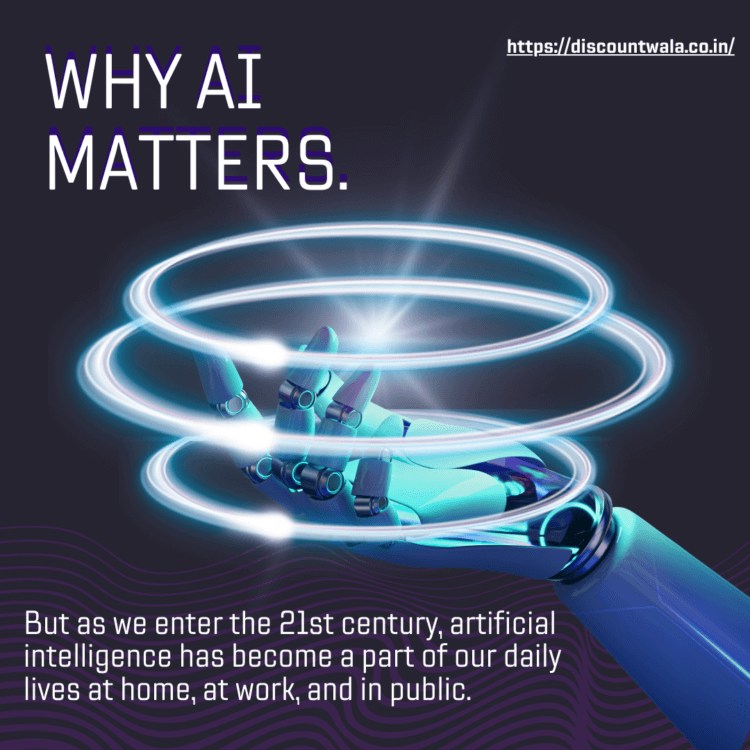But as we enter the 21st century, artificial intelligence has become a part of our daily lives at home, at work, and in public. From recommending content in social media feeds to diagnosing rare diseases in hospitals around the world, we are slowly building a world around machine learning. So why is artificial intelligence so important in technology development, and why are data scientists and engineers excited about developing artificial intelligence?
In this article, I hope to answer some of these questions. I also want to expand on AI’s immense potential to improve the way humans live, work, and evolve. What is artificial intelligence? Artificial intelligence is a scientific idea that refers to the creation and development of computers and machines that can perform, process, and make decisions independent of human input and interaction. Simply put, artificial intelligence systems themselves can be thought of at a very basic level. In other words, artificially intelligent machines replicate the way we humans think.
AI systems learn through what we call “machine learning,” identifying patterns and trends to make their own decisions about how best to complete a task. They can take verbal and written instructions, recognize objects, faces, and voices, learn from experience and sensations, and perform a variety of tasks.
Most artificial intelligence agents are programmed by data scientists and engineers, using algorithms they use to sift through huge data sets and identify patterns. These patterns help you learn how to respond to the world and perform tasks well.
Why is AI important?
Many of us are unknowingly benefiting from AI in our daily lives. Streaming services like Netflix and Amazon Prime recommend shows you like through AI systems that use data about your viewing habits to determine which series to watch next. As in the case of Amazon’s Alexa, a digital assistant’s speech recognition service receives data from the user in the form of spoken language and uses algorithms to convert that data into a text file that tells the user what they need to do. determine if there is AI in social media that can help curate the content in your feeds to be more relevant. Google uses artificial intelligence to sift through millions of search results to help you find what you’re looking for. On a more complex scale, self-driving cars use complex networks of AI systems to make real-time decisions while driving, protecting the “driver” and passengers in transit.
These types of vehicles receive data through a series of sensors and a central computer uses machine learning to make decisions based on the patterns identified by these sensors. B. Proximity to other vehicles on the road, traffic lights, and weather changes. On a more general level, much of modern healthcare uses artificial intelligence to diagnose and treat illnesses and injuries. Medical AI systems can take data from patients and doctors and use what they’ve learned about diseases through experience to identify small patterns in that data and make more accurate diagnoses.
Why Artificial Intelligence Matters to Enterprises Modern businesses use data in almost every part of their operations. From logistics management to marketing, human resources to strategy, businesses use data to better inform processes and deliver better results. AI solutions are becoming increasingly prevalent to help businesses make better decisions by analyzing existing data and acting on patterns in that data. This growing popularity has also increased the need for professionals in the field, and demand is being met by artificial intelligence courses hosted by many of the top educational institutions around the world.
Here are some examples of AI in business.
Marketing – Presenting products that customers want to buy is essential for a retail business to be profitable. An AI smart shopping recommendation system uses customer data to predict what a customer might want to buy and put that product front and center on her web page to ensure conversions. AI and CRM are also essential applications in marketing.
Logistics – Logistics is often one of the most complex areas of business and AI can be very helpful in this area. Logistics solutions for the future.
Strategy – Leading companies use data to drive their strategies and plans for the upcoming fiscal year. AI can help you take data from your sales history and use it to predict future sales. These insights help strategists make critical decisions about how to move the business forward.
Manufacturing – Manufacturers often use AI to determine supply and demand for specific products, resource management, and more. For example, if demand for a product increases, an AI system can instruct manufacturing plants to increase production of that product to meet demand. Modern AI is a diverse and endlessly fascinating field of scientific and technical research, with new and exciting developments taking place every year. With the growing use of AI in products, companies, and services, data scientists, business analysts, and AI engineers are in greater demand than ever before, and new career paths are always opening up for them. If you’re interested in a career in artificial intelligence or machine learning, the University of Liverpool offers pioneering and industry-leading online master’s degree courses in artificial intelligence that will take you on the first step toward a career in machine learning. For more information on the course, please visit our website here.










No Comments
Leave Comment